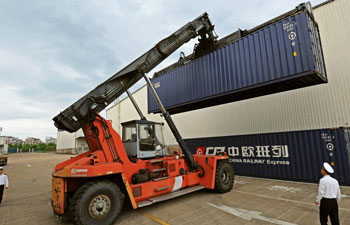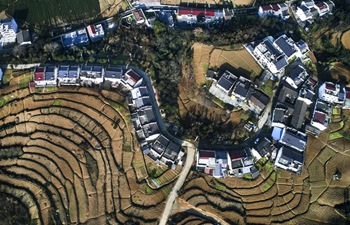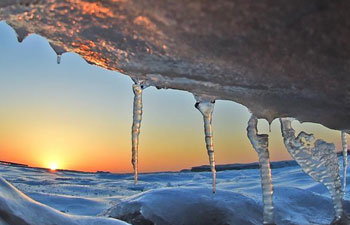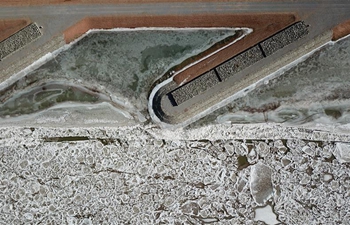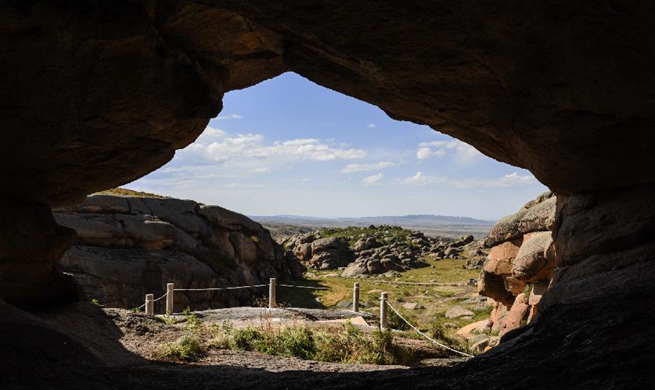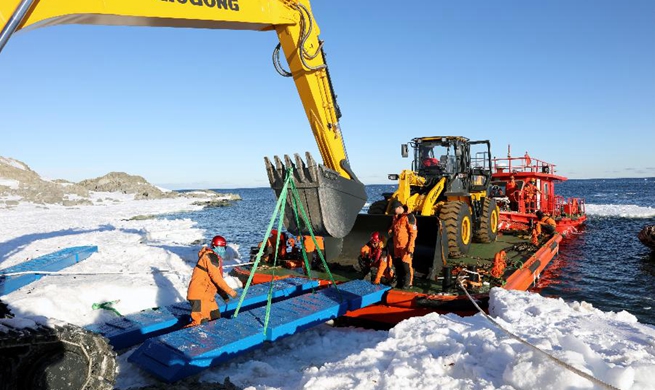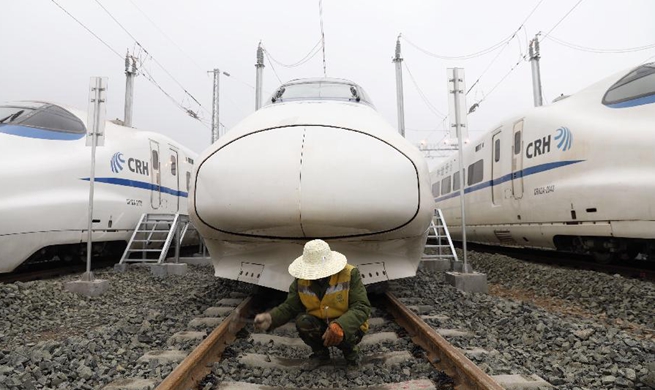SAN FRANCISCO, Jan. 16 (Xinhua) -- Fracking is one of the least sustainable options for producing electricity, if environmental, economic and social sustainability is taken into account, a new study said Tuesday.
The study by the British University of Manchester (UM), published in "Science of The Total Environment" journal and released on Tuesday, says fracking, or hydraulic fracturing to extract shale gas, is a highly disputable method as it needs a large amount of investment to become a sustainable option.
The research compares shale gas and other electricity options against 18 sustainability indicators, including environmental, economic and social. They range from environmental pollution, electricity costs, impacts of climate change and public opinion to job creations.
The study, the first of its kind, found that shale gas ranks seventh out of nine electricity options when compared with coal, nuclear, natural gas, liquefied natural gas (LNG), solar photovoltaics, wind, hydro and biomass.
The study says considerable changes would be required to make shale gas as sustainable as wind and solar power -- notably more than a three hundredfold reduction in environmental impacts.
Shale gas is not good enough to compete with domestic natural gas and imported LNG if its environmental and social sustainability is not improved by over 100 times.
"Previous studies focused mainly on environmental aspects of shale gas, largely in the U.S., with scant information on socio-economic aspects," said Adisa Azapagic, a professor with the UM School of Chemical Engineering and Analytical Science.
She said UM scientists examined, for the first time, not only the environmental impacts, but also the economic and social aspects of shale gas.
If equal importance is given to the environmental, economic and social impacts of shale gas extraction, it is beaten by most other options for electricity generation, which are more sustainable, she added.
The study suggests that "any future electricity mix would be more sustainable with a lower rather than a higher share of shale gas," Azapagic said.




